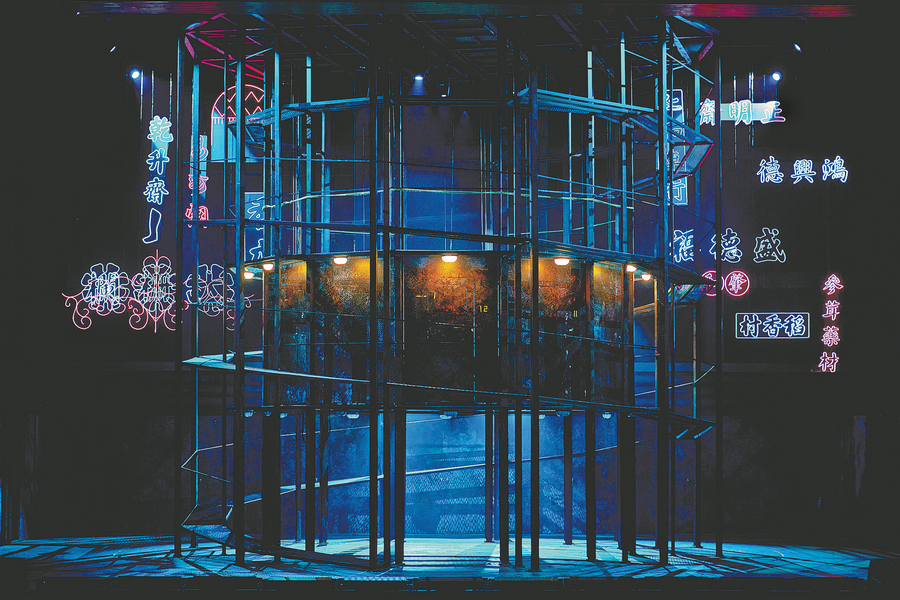

New production features an unusual cast member and a unique interpretation of Luotuo Xiangzi, Zhang Kun reports.
In the new theater production Luotuo Xiangzi by the Shanghai Dramatic Arts Centre, cast members will be joined onstage by a somewhat unusual addition — a robotic "camel".
Xiangzi, with the nickname of "camel", is one of the most famous protagonists in 20th century Chinese literature.
Xiangzi is a strong and simpleminded young man from the countryside, aspiring to get rich through hard work in Luotuo Xiangzi, the celebrated 1936 novel written by Lao She (1899-1966).
An unauthorized translation for the book in English titled Rickshaw Boy became a best-seller in the United States in the 1940s. Excerpts of the novel can be found in textbooks for middle school students in China, and the novel has been adapted for cinema and opera as well as theater.
He Nian, director of the SDAC production, says he wanted to "interpret classical Chinese literature in modern vocabulary, and create a play for young audiences today".
In the novel, Xiangzi keeps failing in his efforts to buy a rickshaw, until he loses all hope.
In Shanghai, a cage 11.5 meters high takes center stage with much of the performance centered on it.
"It's a symbol of the social structure, and in his efforts of climbing to a higher class in society, Xiangzi finds himself trapped and disillusioned," He explains.
The director also decided to introduce the "camel", which he said represents a powerful allegory of the fate of the hero. The "camel" is in fact a quadrupedal robot dog developed by Unitree, a Chinese technology firm.
Acting with the robot, which is 1.1 meters high and weighs 50 kilograms, was a unique experience for the actors.
"Reciting my lines to the robot camel feels like an encounter with an ice-cold, stone-hard character on the stage. It gives me more softness and vulnerability," says Wang Yicheng, who plays Xiangzi.